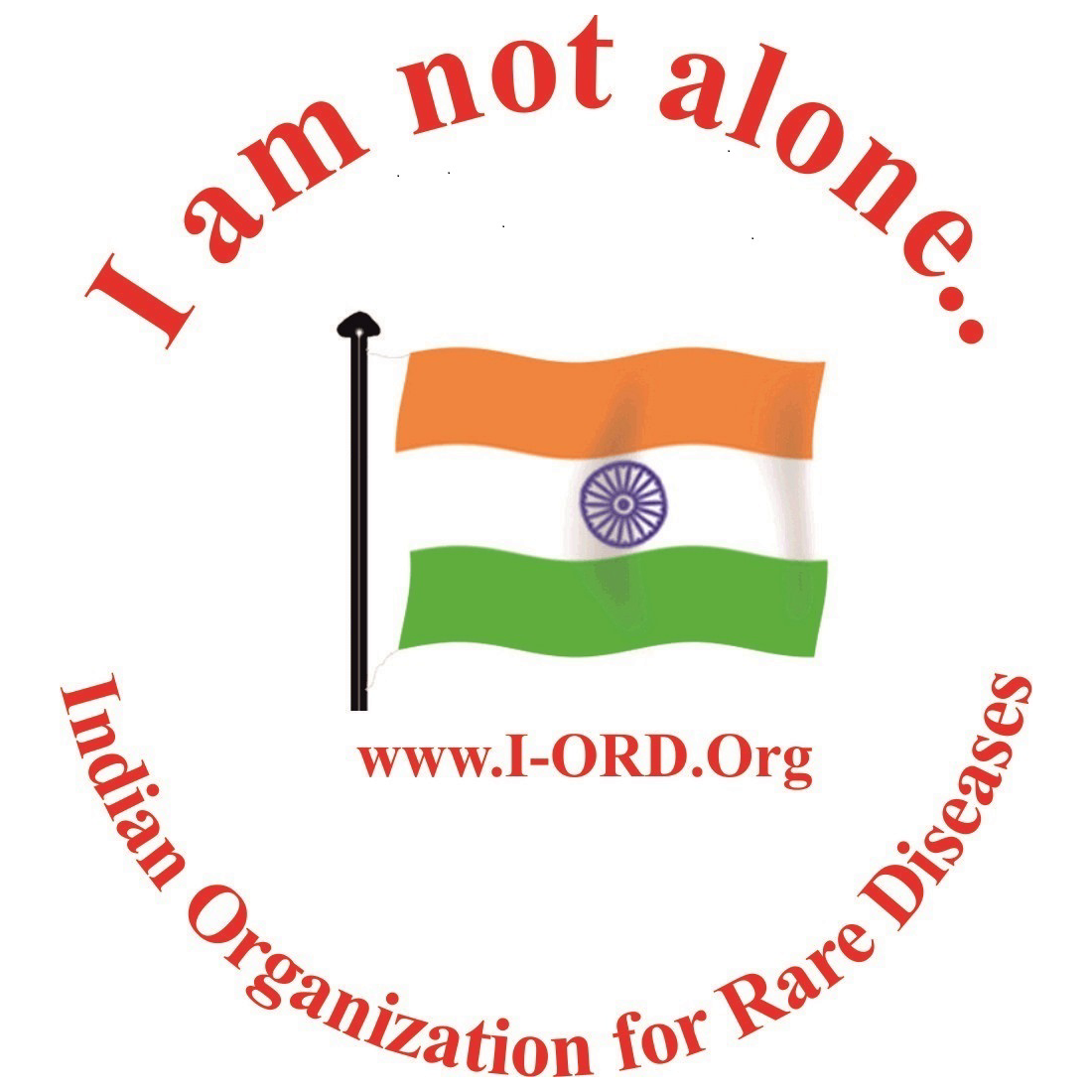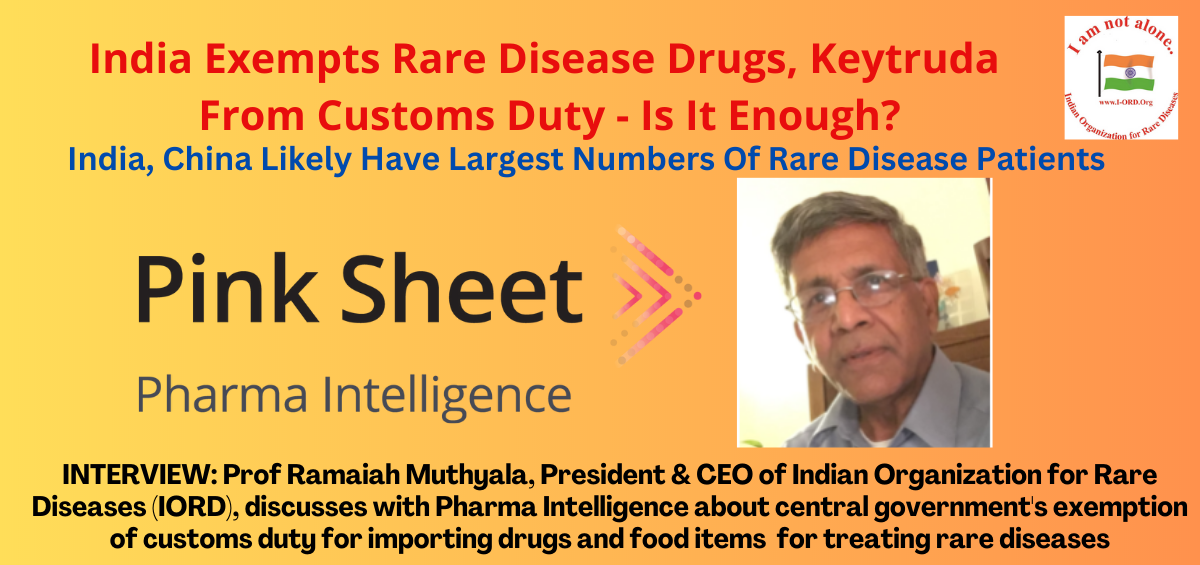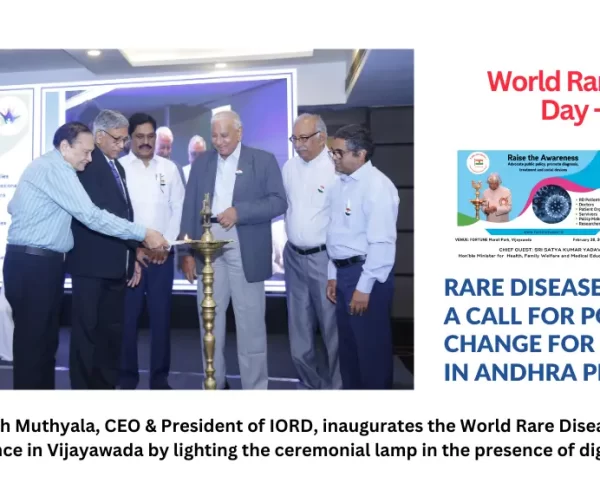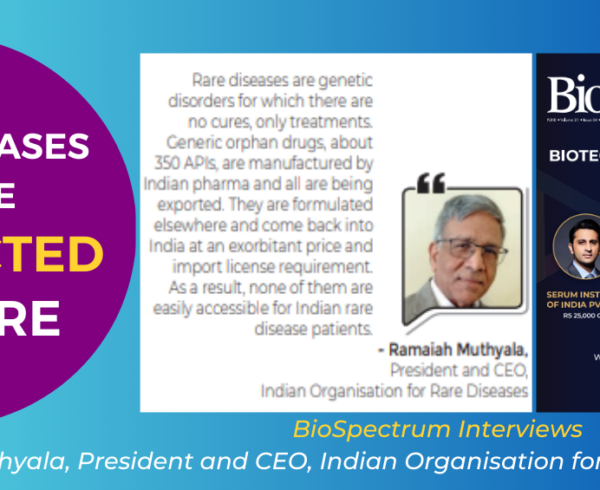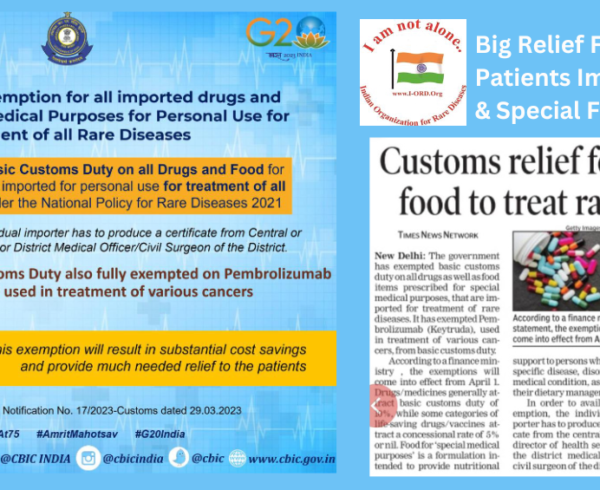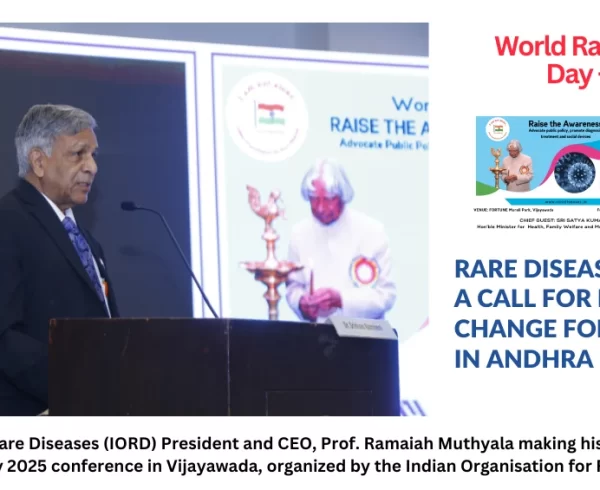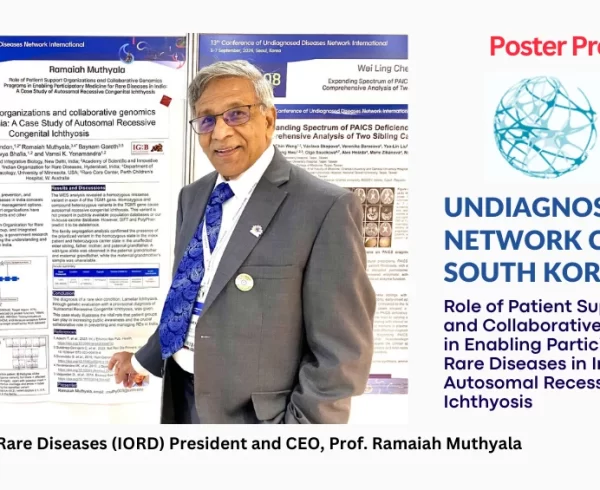The following is an excerpt from an interview conducted by Pharma Intelligence with Prof Ramaiah Muthyala, President & CEO of Indian Organization for Rare Diseases (IORD), on central government’s exemption of customs duty on imported drugs and food items recommended for special medical purposes to treat rare diseases. You can read the complete story written by Vibha Ravi here:
Industry observers expect the waiver of duty on Keytruda to have a greater impact than the exemption on rare disease drugs given that it is the highest-selling oncology drug in India. Online pharmacy 1mg.com shows a 4 mg vial of Keytruda priced at INR212,850 ($2,595).
Will The Exemption Move The Needle?
While exemptions were provided to specified drugs earlier for treatment of Spinal Muscular Atrophy (SMA) or Duchenne Muscular Dystrophy DMD), patient advocacy groups Indian Organization for Rare Diseases (IORD) and Organization For Rare Diseases India (ORDI) have been making representations to the government seeking customs duty relief for drugs and medicines used in treatment of other rare diseases.
Co-founder and Executive Director of ORDI, Prasanna Kumar Shirol said “this helps those who can afford the costly treatment and those who get free drugs under the charitable access programs.” However, only about 5% of rare diseases have treatment and “very few” of these drugs are sold in India. Shirol told Scrip that import volume of rare disease drugs on a personal basis is low. Though the government has permitted crowd funding for the purpose “how many can actually do that?”
Novartis AG, Sanofi, Pfizer Inc., Takeda Pharmaceutical Co. Ltd., Roche Holding AG and AstraZeneca PLC are some of the major rare disease players in India. Given that a substantial part of the need for such drugs is met via patient/compassionate access programs run by such companies, the move is not expected to move the needle much on their sales.
It’s only where the cost of a drug is very high that the exemption will result in material savings for patients, with a few perhaps being able to fund an additional dose. As an example, Novartis’ Zolgensma (onasemnogene abeparvovec) , a one-time treatment for SMA, costs about INR160m – much more than the price to purchase a house even in a city like Mumbai, which has some of the highest real estate rates in the country. Fiscal measures like reducing the Goods and Sales Tax (GST) – currently 12% – levied on rare disease drugs could have a greater impact, he added.
“The duty exemption on special dietary foods will make more of a difference” to pockets since some of these cost INR6,000-8,000 ($73-98) per kg and three to four kgs are required every month. Given that consumption is based on body weight, the quantities go up as the patient’s age increases.
Fiscal Incentives, Make In India
IORD president & CEO Ramaiah Muthyala said while the duty exemption is a step in the right direction only a move to “Make in India will make a real difference.”
When asked by Scrip if Indian companies like Cipla Limited, Zydus Lifesciences Limited and Natco Pharma Limited, which are expanding their rare disease portfolios, could help with access, Muthyala said “most of them are making such drugs for exports.”
While the Rare Diseases Policy prompted some interest in manufacturing such drugs “Are they available for patients in India? I am yet to see results despite announcements,” he added.
However, companies like Laurus Labs Ltd. and Pristine Organics are making efforts in this direction. Laurus Labs founder, Satyanarayana Chava has said the company plans to make and market affordable drugs for rare diseases like Wilson’s Disease and cystinuria in India.
“The highly sought but costly orphan drugs are biologicals. Biosimilars are unavailable because their manufacturing technology is complicated, unlike generics which India mastered and did better than any country,” he added.
Muthyala feels the government should do more to incentivize companies to produce drugs for rare diseases and has submitted a list of 29 orphan drugs with expired orphan drug exclusivity status to Vinod Paul, member of NITI Aayog, India’s think tank. “Anyone can select any one or more drugs for manufacturing.”
Besides, the government should set up a nodal agency to help companies and individuals seeking information on rare diseases, Muthyala concluded.
